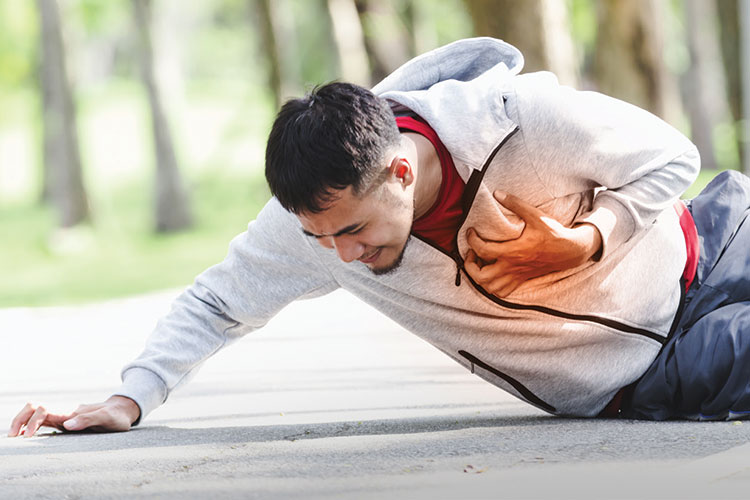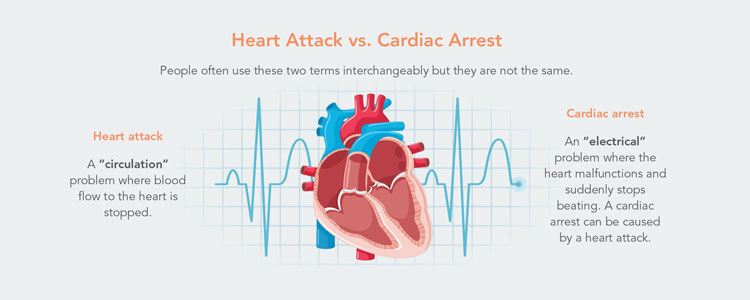
A condition where the heart stops beating unexpectedly, sudden cardiac death can happen to anyone.
We have all read about the heart-wrenching stories: a young footballer collapsing on the field during a football match, or a seemingly healthy colleague suddenly falling unconscious, leading to frantic efforts by medical professionals to save their lives.
Such abrupt and life-threatening incidents are due to a condition known as sudden cardiac death. What causes it, and how can we protect ourselves and our loved ones from the menace of sudden cardiac death?
Dr Leslie Tay, a consultant interventional cardiologist and physician at Mount Alvernia Hospital explains more.
What is sudden cardiac death?
Sudden cardiac death, or sudden cardiac arrest, happens when the heart unexpectedly stops beating, cutting off blood flow to the brain and vital organs. Without immediate intervention, death occurs within minutes.
What causes sudden cardiac death?
There are many conditions linked to sudden cardiac arrest. For those over 35, sudden cardiac death is often caused by heart attacks and coronary heart disease.
Coronary artery disease occurs when cholesterol plaque builds up in the heart arteries, causing them to narrow. This narrowing restricts blood flow to the heart muscle, potentially leading to chest discomfort, shortness of breath, and heart rhythm issues, often felt as palpitations.
A heart attack, on the other hand, happens when these narrowed arteries rupture, creating blood clots that block blood flow, starving the heart of oxygen, ultimately leading to heart muscle death if not treated immediately.

In younger individuals, inherited cardiac abnormalities, particularly hypertrophic cardiomyopathy (HCM), are common causes of sudden cardiac death. HCM results in an abnormally thickened heart muscle, obstructing blood flow and increasing the risk of deadly heart rhythms due to disorganised heart muscle cells.
What are the warning signs before sudden cardiac death?
Symptoms like breathlessness, chest pain, palpitations, fainting spells, or sudden loss of consciousness, often precede sudden cardiac death. These warning signs provide an opportunity to seek medical help and take preventive actions.
Unfortunately, there are some victims who experience no prior symptoms, making sudden cardiac arrest their first indication of underlying issues. In such cases, a family history of unexplained sudden death may be the only clue or warning.
How can individuals reduce their risk of sudden cardiac death?
Before engaging in vigorous exercise or endurance events, pre-participation screening is crucial. Those with existing medical conditions such as heart disease, diabetes, high blood pressure, high cholesterol, or a family history of heart disease or stroke should consult a doctor. Individuals who smoke or are overweight may also be at higher risk and should be screened for any underlying concerns.
Screening typically includes a comprehensive medical history and physical examination, an electrocardiogram to read the electrical activity of the heart, an echocardiogram to look for structural abnormality, and a treadmill test or CT coronary angiogram to detect coronary artery disease. Technological advancements can also help in monitoring cardiac conditions.
Depending on the specific condition being monitored, wearable devices such as smartwatches equipped with remote monitoring technology can track heart rhythms in real time. These devices can alert doctors to any irregularities, enabling swift intervention.
Can sudden cardiac death be reversed?
Sudden cardiac death requires immediate medical attention. There are automated external defibrillators (AEDs) often found in public spaces and can be used to restart a victim’s heart when combined with cardiopulmonary resuscitation (CPR). Members of the public can help save lives by enrolling in a basic life support and AED course that only takes a few hours.
Quick Action Saves Lives!
AEDs and CPR can significantly improve survival rates in sudden cardiac arrest cases.
Sudden cardiac death is a formidable and unpredictable threat, but awareness, early detection, and prompt response can save lives. Understanding the risks, recognising the symptoms, and utilising modern technology are crucial steps in combating this silent killer.
Article contributed by Dr Leslie Tay accredited doctor from Mount Alvernia Hospital.
This article is taken from our MyAlvernia Magazine Issue #53. Click here to read the issue on our website.